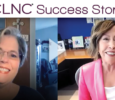Four Certified Legal Nurse Consultants share their most effective attorney-interview strategies, common mistakes legal nurse consultants make and how to avoid interview anxiety. These CLNC® Pros remind us that RNs are more than qualified to interview successfully with attorneys. All you have to do is follow their sage advice.
12 Proven Attorney Interview Strategies
- Research the attorney and law firm. Research their website for biographical information and specific types of cases they litigate. Strategize how you will apply the research findings to the interview.
- Rehearse and rehearse some more. Practice delivering your unique selling position (USP). You must be able to concisely and factually explain why you’re the Certified Legal Nurse Consultant best suited to meet the attorney’s needs. Ashley Moreau, RN-F, BSN, CCS, CLNC shares, “I take time to consider what the attorney is going to ask so I know what my response will be without saying, ‘um’, ‘uh’ and ‘hmm’. If you have the experience, you already know the answer. Practice it. If you don’t have the experience, take the time to consider questions that the attorney will ask and map the answers out in your head so you can respond confidently.”
- Arrive on time for the interview in person or videoconference. Be professional, confident and prepared. If interviewing from home, maintain a professional, quiet environment – no TV, dogs, kids or chiming devices.
- Connect with the attorney’s assistants in a warm and cordial manner. The bigger your fan club inside the law firm, the more likely you’re going home with a case.
- Include a sample work product with your promotional package. Showing what you do is always better than telling the attorney what you can do.
- Be yourself. Smile and look the attorney directly in the eyes when speaking. Don’t fidget.
- Engage the attorney with questions: For example, “What’s the most challenging case you’re working on?” Questions give you insight into the attorney’s focus and concerns as a litigator and engage the attorney in a relevant conversation. Listen carefully so you can summarize the attorney’s issues, needs and problem areas. For example, “What I heard you say is that you have a highly successful legal practice, that you’re overwhelmed with electronic medical records and that you like all of the records to be organized in an easy-to-absorb report format.”
- Emphasize your nursing knowledge and clinical skills. If asked the dreaded question, “How many cases have you consulted on” and your answer is zero, say so and add that you’ll be putting your x number of years of nursing experience behind your opinions. Ashley Moreau, RN-F, BSN, CCS, CLNC shares, “I speak to attorneys with respect of course, but I also speak to them as if I’m already on their team. I’m already their expert and their secret weapon for all things nursing home related.” Michelle Neal, RN, BSN, CLNC adds, “Focus and be confident in your ability as an RN. When I had my first interview, I was so nervous, but I knew that if the attorney recognized I was nervous, I wasn’t going to seal the deal. Focus on what makes you special and qualified to be a Certified Legal Nurse Consultant.”
- Be honest about what you don’t know. And cut yourself some slack. We don’t know everything and neither do attorneys. We’ve all been in that attorney-prospect interview where we squirmed in our seats because we were not knowledgeable about the case they were discussing. This is the perfect time to stay confident. Simply inform the attorney that you have at your fingertips all the resources (your CLNC subcontractors) to get exactly what they need. This can actually be a win-win situation for all involved.
- State your fee with confidence. Charge what you are worth and not a penny less. Practice stating your fee in front of a mirror until doing so feels natural. Remember, attorneys are purchasing your nursing knowledge and not the number of cases you’ve consulted on.
- Ask for the case before you leave the attorney’s office. Dorene Goldstein, RNC, BSN, CLNC explains, “I ask the attorney if they have a particular case in mind they would like me to review.” If you don’t receive a case, offer a risk-free guarantee or provide a free case screening. Everyone likes getting stuff for free and attorneys are no different. Offer a few free hours to get your foot in the door. Remember to also ask for referrals.
- Follow up with emails and/or phone calls. Michelle Neal, RN, BSN, CLNC advises, “Send the attorney an email the day after the interview thanking them. Ask if they have any follow-up questions. Send a handwritten thank you card, thanking them for taking time out of their day to learn about your CLNC services. Be sure to answer any unanswered questions. If you didn’t know an answer to an interview question and told the attorney you would research the answer, make sure you do so in a timely manner. Offer a one-time discount such as a free screening. I like to end all interviews with, ‘I look forward to working with you’ or ‘I will follow up in the next couple of days. Stay true to your word. If you say you’re going to follow up, do so.” Carol Fridal, MS, RN, CEN, CLNC adds, “Get to know the attorney’s support staff and paralegals. They can help your stay in touch with the attorney.”
Common Mistakes Legal Nurse Consultants Make When Interviewing with Attorney-Clients
- Not researching the attorney or law firm prior to your interview. Do your research. Educate yourself on the types of cases the firm usually handles. Michelle Neal, RN, BSN, CLNC recommends, “Pay attention to the firm’s successful trials, which are often posted on the large law firm websites.”
- Not applying your USP to the type of attorney or law firm you’re interviewing with. If the attorney is a personal injury attorney, you wouldn’t want to focus on standards of care. You would discuss your ability to assess damage and causation issues.
- Doing all the talking. Briefly describe your relevant experience, then let the attorney speak. Engage the attorney and don’t interrupt when they’re speaking. Ask for feedback.
- Assuming you know the attorney and the needs for the case. Carol Fridal, MS, RN, CEN, CLNC shares, “Don’t make blanket assumptions about the attorney and law firm. Ask questions and communicate.”
- Stating that you don’t have experience in a specific area without adding, “But I have a network that does!” Ashley Moreau, RN-F, BSN, CCS, CLNC describes, “CLNC consultants don’t need to have experience in every specialty. But you can manage your CLNC business like you do. Network, connect and communicate with other Certified Legal Nurse Consultants. Subcontract with them and keep the attorney-client for yourself.” Michelle Neal, RN, BSN, CLNC adds, “Never say, ‘I don’t know.’ Never tell attorneys you don’t know something without informing them you will research the answer and get back to them.”
- Not considering being a subcontractor while building your own CLNC business. Ashley Moreau, RN-F, BSN, CCS, CLNC states, “When I first started as a Certified Legal Nurse Consultant, I wanted to subcontract because I wanted the experience and feedback. I still subcontract today.”
- Not obtaining a retainer. Michelle Neal, RN, BSN, CLNC adds, “It’s exciting to get that first case and sometimes we get caught up in the excitement of achieving our first goal that we forget to do business. If the attorney presents you with your first case after the interview, remember to discuss your retainer fee and agreement up front.”
How to Avoid Interview Anxiety
- Prepare before the interview. Practice, practice, practice! Go over potential interview questions and rehearse with a spouse, mirror or camera.
- Get a good night’s sleep and hydrate before the interview.
- Give yourself some slack going in. Michelle Neal, RN, BSN, CLNC agrees, “You’re not perfect and if you make a mistake, it’s okay. Everyone makes mistakes. Successful Certified Legal Nurse Consultants just keep focusing and moving forward.”
- Engage the right mindset. Ashley Moreau, RN-F, BSN, CCS, CLNC shares, “I’ve invested more in my mindset than anything else in my CLNC business. My mindset has by far had the most impact on my success. Channel anxiety into a positive thought such as ‘I’m so excited to have the opportunity to share what I do and to add a new client.’” Carol Fridal, MS, RN, CEN, CLNC adds, “Don’t think of this as an interview because it’s not. Showcase what you can do for the attorney and the case. Jump in and get your feet wet.”
- Breathe. Remember you are a Registered Nurse! Dorene Goldstein, RNC, BSN, CLNC advises, “Attorneys are real people too and they need us. We’re knowledgeable about complex medical and nursing issues that attorneys are not. Sometimes the attorney doesn’t even know how to pronounce a medical term.”
Thanks to Carol Fridal, MS, RN, CEN, CLNC, Dorene Goldstein, RNC, BSN, CLNC, Ashley Moreau, RN-F, BSN, CCS, CLNC and Michelle Neal, RN, BSN, CLNC for sharing their attorney-interview strategies.
Employ these proven strategies to be confident and competent in communicating your expertise in attorney interviews.
Success Is Yours,
P.S. Comment and share the strategies you use as a Certified Legal Nurse Consultant in attorney interviews.








